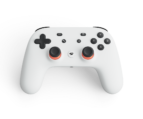Magic Leap debuts first Independent Creator Program game
by on 29th Jul 2019 in News

The first game supported by Magic Leap's Independent Creator Program has gone live for the outfit's long-hyped AR platform.
Portuguese studio ONTOP's PuzzlAR: World Tour is a casual 3D jigsaw puzzle game, and in fact a tweaked port of a mobile game. Of course, any port top Magic Leap is going to take some effort; the AR headset user an approach to overlaying digital assets onto the real world pitched as highly distinct.
Famously long in development, the Magic Leap headset has attracted significant investment since details about its existence emerged in 2014. Over seven rounds investors have thus far put USD2.6bn (£2.1bn) towards the hardware, which has sometimes been described as over-hyped. The Registry in 2017 described the company to be effectively offering vaporware; technology that either does not exist, or is only a concept yet to actually offer what is proposed.
Of course, it came to emerge that the Magic Leap headset does exist, and is certainly functional, if not ultimately perfect. And that is quite normal for early editions of emerging technologies. The 'Magic Leap One' iteration debuted as a limited release to content creators in August 2018, and as of April this year a 'Personal' edition was made available to consumers for an eyebrow-raising $2,295 (£1,864) per unit.

The Magic Leap One in use.
Back in 2018 Oculus founder and former CEO of the famed VR company Palmer Luckey published a comprehensive technical tear down of the Magic Leap technology, describing the Creator edition as 'less of a functional developer kit and more of a flashy hype vehicle that almost nobody can actually use in a meaningful way'. Palmer also dismissed the headset's technology, which has long been shrouded in secrecy. The 'photonic lightfield chips' approach developed by Magic Leap to deliver its version of AR, Luckey asserts, simply offers existing technology even seen in older Microsoft Hololens AR headsets.
But investors continue to back Magic Leap, and ONTOP is by far the only game developer keen to support the platform. Magic Leap reports that some 6,500 developers applied to the Independent Creator Program, which sees the platform holder provide grants between $20,000 and $500,000 to eligible creators.
"In the coming months, many of our creators will be publishing their experiences to Magic Leap World," reads a statement from the company. "We’ll share their thoughts here about the journey of developing for Magic Leap One."
Certainly, Magic Leap headsets will need a decent software library to shift units to consumers; and content creators will prefer reasonable market penetration to keep supporting the platform. It's a classic technology dichotomy every new platform must overcome. It could be argued that the Magic Leap hardware has been too hyped and too delayed - and it certainly feels rather too costly to become everyday under its current price-point. And then there's the accusations such as Magic Leap not offering reliable enough control tracking; again, Luckey's blog explores that point.
Not that we found those problems to be pronounced during a brief hands-on session with the hardware. The Gaming Economy tried the casual gaming icon Angry Birds as ported to the Magic Leap One at the recent Develop Conference in Brighton, UK. The headset is light and comfortable - and considerably less bulky than the Hololens or an Oculus headset, while Angry Birds played impressively; especially considering the busy, noisy conference floor environment in which our hands-on session took place. To take in a reasonable amount of play-field the headset did need to be worn at a slightly counter-intuitive position; almost pointed down at the tip of the nose - but it felt like a technology plump with potential.
The question is, has that potential been too protracted in it's roll out; and will Magic Leap be able to delivery units at a considerably lower price?







Follow TheGamingEconomy